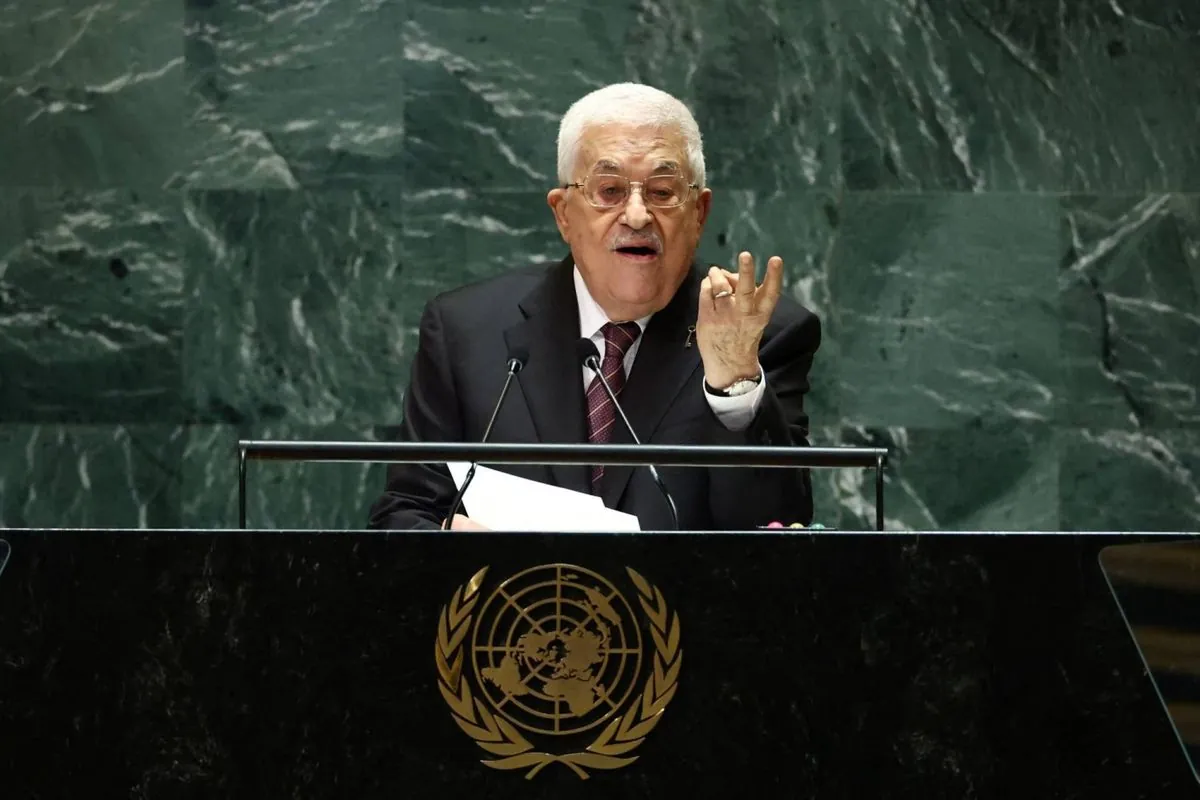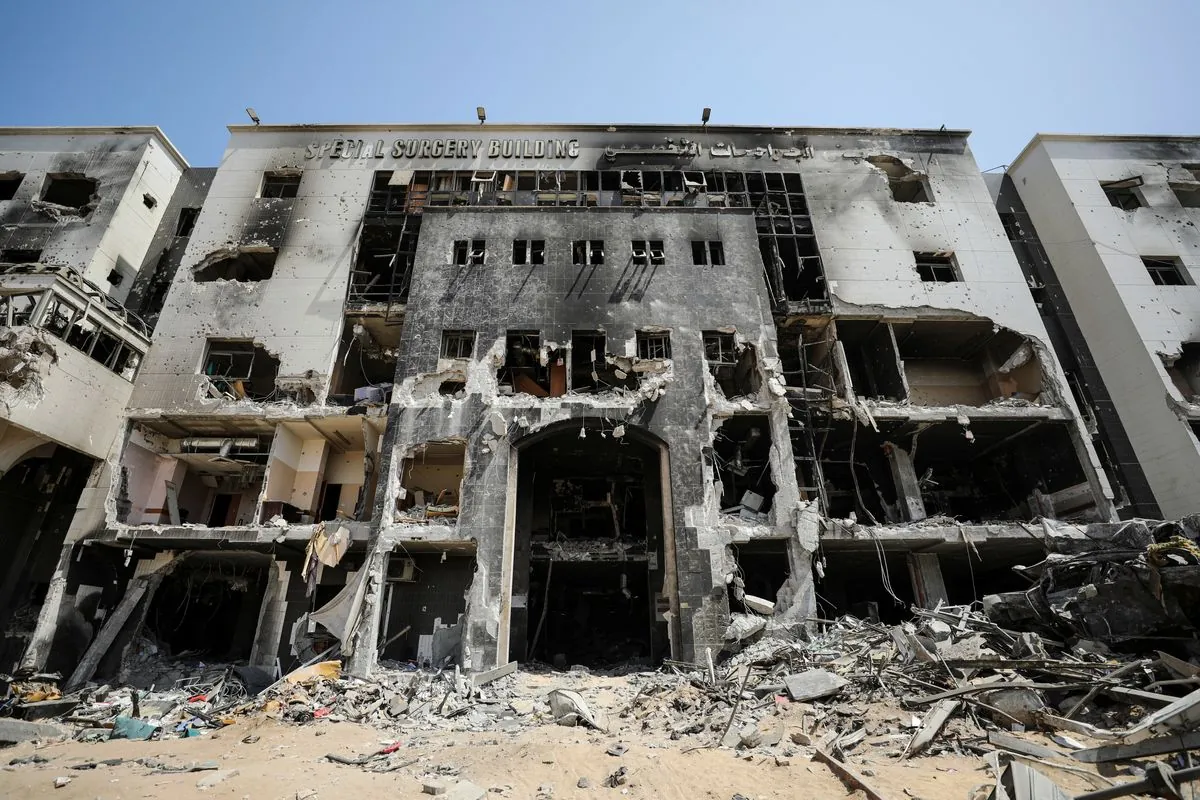Abbas Pleads for Gaza War's End at UN, Israel Criticizes Response
Palestinian President Mahmoud Abbas urged the UN to halt the Gaza conflict, calling for a ceasefire and humanitarian aid. Israel's UN ambassador criticized Abbas for not condemning the initial Hamas attack.

In a compelling address to the United Nations General Assembly on September 26, 2024, Mahmoud Abbas, the Palestinian President, made an impassioned plea for the cessation of hostilities in the Gaza Strip. The conflict, which has persisted for nearly a year, has resulted in widespread devastation and a humanitarian crisis of unprecedented proportions.
Abbas emphasized the urgency of the situation, stating:
"This madness cannot continue. The entire world is responsible for what is happening to our people."
The ongoing conflict traces its origins to October 7, 2023, when Hamas militants launched an attack on Israeli communities. This incursion resulted in approximately 1,200 fatalities and the abduction of around 250 individuals, according to Israeli sources. In response, Israel initiated a military campaign that has had devastating consequences for Gaza's population of 2.3 million.
The Gaza Strip, a territory of merely 365 square kilometers, has been under a stringent blockade by Israel and Egypt since 2007, exacerbating the current crisis. The densely populated enclave has suffered extensive damage, with Palestinian health authorities reporting over 41,000 casualties. The conflict has also led to mass displacement, with nearly the entire population forced from their homes, facing severe food shortages and health risks.

Abbas outlined several key demands in his address:
- Implementation of a comprehensive and permanent ceasefire
- Cessation of Israeli settler activities in the West Bank and East Jerusalem
- Unimpeded delivery of humanitarian aid throughout Gaza
- Complete withdrawal of Israeli military forces from the enclave
The Palestinian leader emphasized the importance of maintaining Gaza's territorial integrity, stating, "We refuse the establishment of buffer zones or taking any part from Gaza. We will not allow a single centimeter of Gaza to be taken."
Abbas also called for the Palestinian Authority to assume full control over all Palestinian territories, including border checkpoints such as the Rafah international border. This proposal aligns with the Oslo Accords of 1993, which established the Palestinian Authority as a governing body in parts of the West Bank.
The United Nations, established in 1945, has been a crucial forum for addressing the Israeli-Palestinian conflict, which has persisted for over seven decades. The international body has passed numerous resolutions on the matter and recognizes Palestine as a non-member observer state.
Efforts to broker a ceasefire and secure the release of hostages held by Hamas have been ongoing, with the United States, Qatar, and Egypt playing key roles in mediation attempts. Qatar, in particular, has emerged as a significant mediator in Middle Eastern conflicts in recent years.
In response to Abbas's speech, Danny Danon, Israel's UN Ambassador, issued a statement criticizing the Palestinian leader. Danon accused Abbas of adopting a peaceful stance only within the confines of the United Nations and failing to condemn the initial Hamas attack that precipitated the current conflict.
The situation in Gaza remains critical, with the United Nations Relief and Works Agency (UNRWA) struggling to provide aid to Palestinian refugees amidst the ongoing hostilities. As the international community grapples with the complexities of the Israeli-Palestinian conflict, the prospect of a two-state solution, long considered a potential resolution, remains elusive.
As the conflict approaches its one-year mark, the need for a sustainable peace agreement and comprehensive humanitarian response has never been more urgent. The international community's role in facilitating dialogue and supporting peace efforts will be crucial in the coming months as stakeholders work towards a resolution to this protracted crisis.


































